No products in the cart.
Dandruff- A Sneak Peek into Your Itchy Scalp
When you hear, “Your hair is full of dandruff!”, it shakes down your self-belief like any other thing. Those snow-like white flakes make your life hard when you want to overlook them in public. Let us dive into the root of one of the most disturbing, non-contagious however highly disconcerting hair conditions appertained as ‘Dandruff’.
What exactly is Dandruff?
To grasp in simple words, dandruff is a condition that makes the skin of your scalp flake in small pieces. Those tiny, white-colored pieces of skin begin to shed off from your scalp as you sweep your hair. Dandruff makes your scalp crimson, itchy, and becomes shoddier in winters.
When you wear darkish garments, you often locate these white flakes adorning your shoulders. It is a common condition experienced not just by women, but men too. Nobody wants dandruff however nowadays, according to researches; every 3 out of 6 people have dandruff.
Types of Dandruff
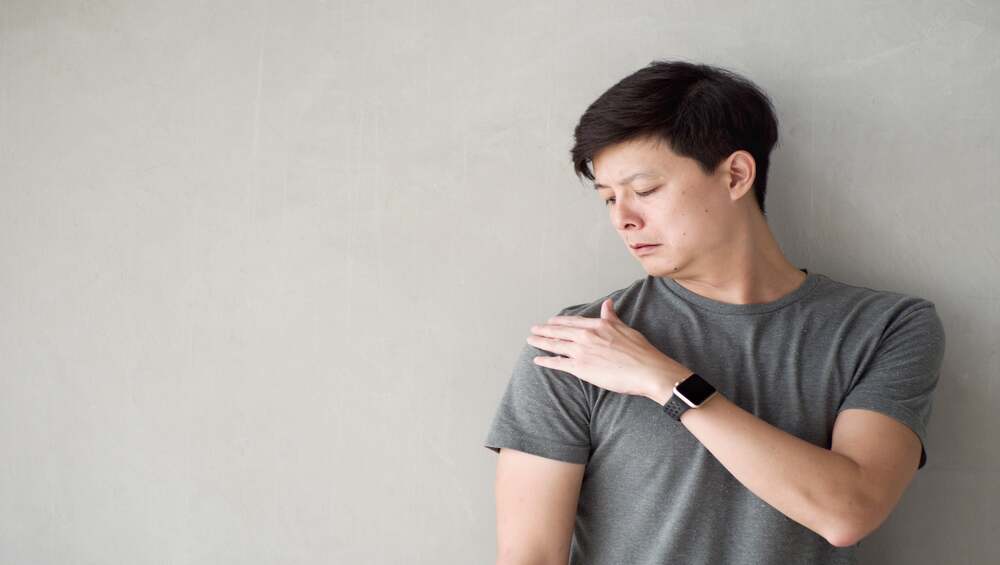
Well, dandruff has been classified into three types- Wet dandruff, Oily dandruff, and Dry dandruff. Dandruff appears differently on individuals depending upon gender, skin conditions, lifestyle habits, and various other factors that contribute to the aggravation of dandruff. Identifying dandruff at an early stage is vital and advised so that it can be controlled before becoming a pressing issue.
Symptoms of Dandruff
The hallmark signs of dandruff include:
- Dry and stiff skin
- Itchy and red scalp
- An outbreak of acne or pimples on face
- Hair fall
The Most Common Reasons of Dandruff
So, what are the possible triggers for dandruff? Prior to understanding it, you first need to understand that the skin on your scalp is constantly shedding itself off and being replaced alongside. Furthermore, there are plenty of reasons which cause dandruff. Let us take a glance over the major ones explained underneath;
1. Dryness
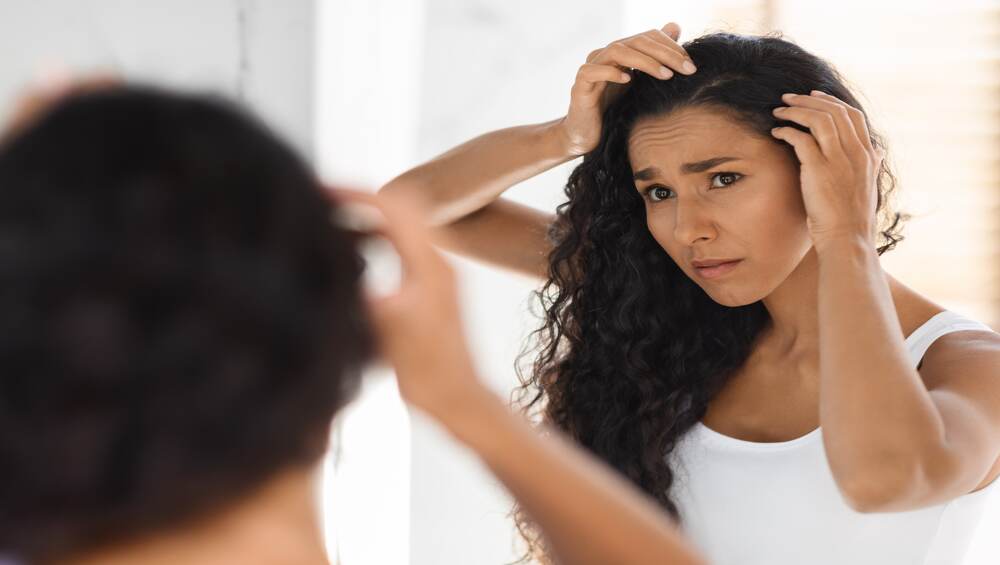
Your grandmothers must have been oiling your hair all your life. Why? It is merely because they never desired your scalp to live or appear dry. Even in the 21st century, the foremost cause of dandruff is dryness. When you have excessive dryness within the scalp, the pores and skin gradually lose their moisture eventually making you see those white flakes falling off your shoulders. The troubles aggravate in winters when the skin is already in ‘dry mode’.
2. Poor Hygiene
We usually run across the bush and neglect where the foundation that bush lies. In terms of dandruff, your entire problem lies in how nicely you hold your asset-your hair. In case you do not shampoo or clean your hair, it will definitely make oil from your scalp and the dead cells will cluster up. A fungus called Malassezia occurs on the scalp which also causes dandruff.
3. Stress
According to researches, stress has an impact on normally all your organs, joints, muscular tissues, skin, and even scalp. The more depressed you are, the more stubborn dandruff you will experience. In reality, the stress hormone gives rise to the ‘itch-scratch cycle’ making your skin sensitive. This might sound bizarre but it is true.
4. Frequent Use of Harsh Hair Chemicals
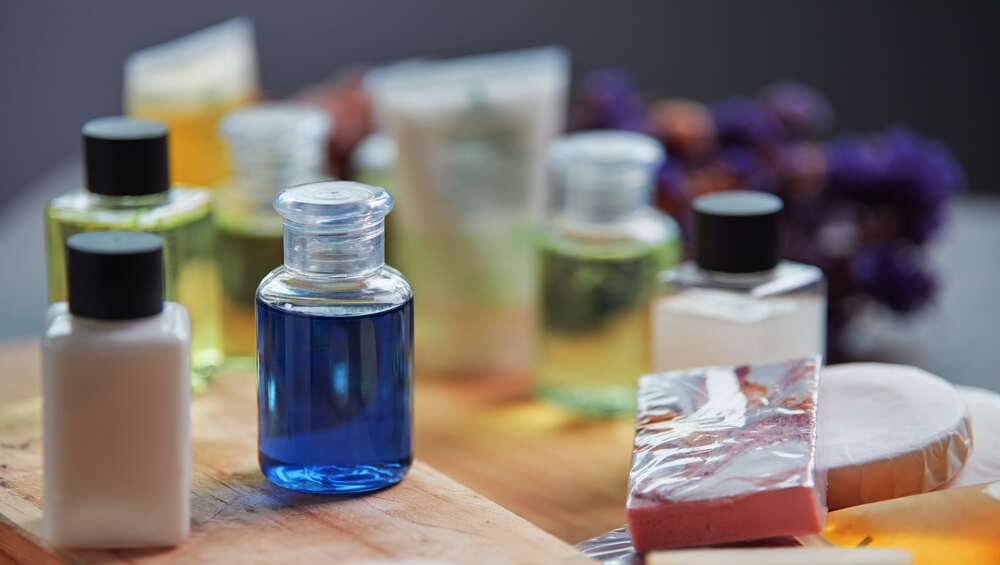
Your natural hair is in its healthiest form already. However, when you are enticed towards some fascinating hair colorings or hair styling products, be prepared to lose the unique texture of your hair. You must be geared up to bear the consequences which include dry scalp, hair fall, and dandruff.
5. Too Much Oil, Too Many Days
When comprehending the causes of dandruff, dryness is not the only triggering factor, sometimes it is too much oil kept in hair for a prolonged period of time. When you apply excessive oil, the scalp can in turn produce a cluster of white flakes because of the sweat created. To avoid dead cells getting accumulated on your scalp, enough shampooing is required.
6. An Underlying Medical Condition
If you don’t fit in any of the reasons mentioned above, probably you have an underlying medical disorder such as psoriasis, eczema, or Parkinson’s disease. Visiting a dermatologist is advised to diagnose the actual cause of your dandruff condition. After all, all you need is your hair in normal condition.
Locations of Dandruff
Yes, dandruff just doesn’t show up on your scalp, but it is widely found on eyebrows, behind the ears, and even eyelashes. Reasons could be aggravated stress, chlorinated water, poor response of the immune system, hormonal imbalance, dehydration, alcohol and smoking habits, sun and heat exposure, excessive usage of hair colors, excessive dryness within the skin, or bacterial and fungal infection. So, don’t ignore when you discover dandruff around these places of your body.
Time to Say ‘Good-Bye’ to Dandruff with Ayurvedic Home Remedies
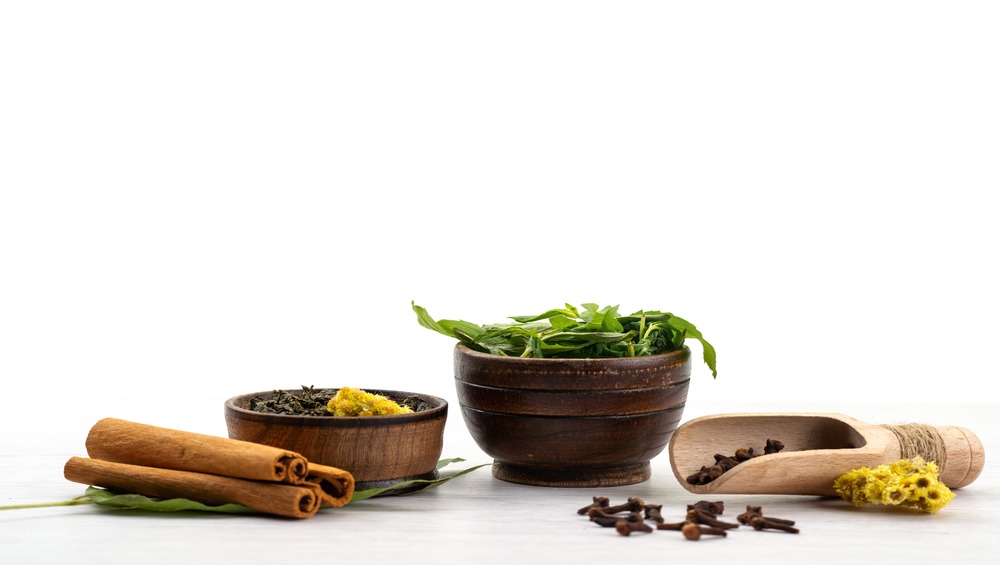
We know that dandruff is hard to get over with permanently especially when you have a chronic condition. However, once you are apprehensive of the possible cause of your dandruff problem, you can consequently work on its remedy and be hopeful of the results. They are visible only if you want them to be.
Let’s take a look into some of the easiest and effective ways to treat dandruff naturally at home:
1. Go for a Simple Oil Massage
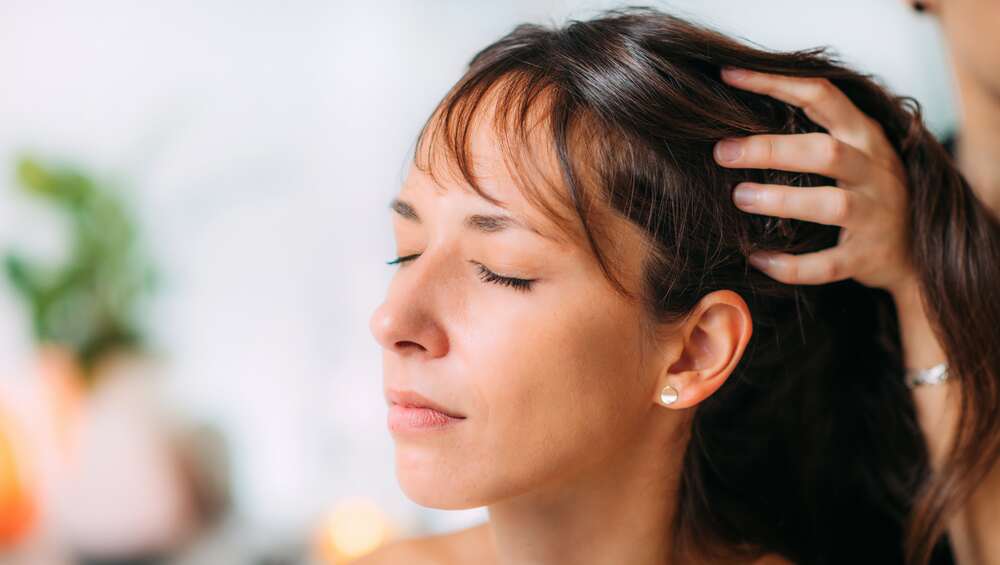
Coconut oil, Chironji oil, Tea Tree Oil, Hibiscus Oil, or Onion Hair Oil – you are absolutely free to go with any of these wonderful oils which are known to moisturize your scalp from within. Add a few drops of almond oil and blend it with any other combination like tea tree oil, olive oil, or any other. Give your hair a soothing oil massage before bed and shampoo your hair in the morning. Chironji Oil works as a scrub and exfoliates the dead cells from the scalp. It relieves dryness and works as a natural moisturizer for hair and scalp.
2. Maintain the Ph Levels with Lemon Cure
Amalgamate lemon juice with coconut oil, apply it and leave the application for half an hour. Rinse your hair with a mild shampoo and avoid any hair coloring after. This remedy using lemon will balance your ph levels and coconut will provide the intense nourishment your hair needs. This fantastic combination is ancient but still holds great significance in treating dandruff naturally.
3. Wash your hair with Neem Leaves Powder
An outstanding, historic ayurvedic treatment for dandruff is washing your hair with neem leaves powder. You can blend it with mustard seeds powder and milk. Apply the paste on the scalp and after leaving it for 20 minutes, wash with water. According to experts, this domestic treatment has been observed to deal with each sort of dandruff.
4. The ‘Not So Old’ Aloe Vera Therapy
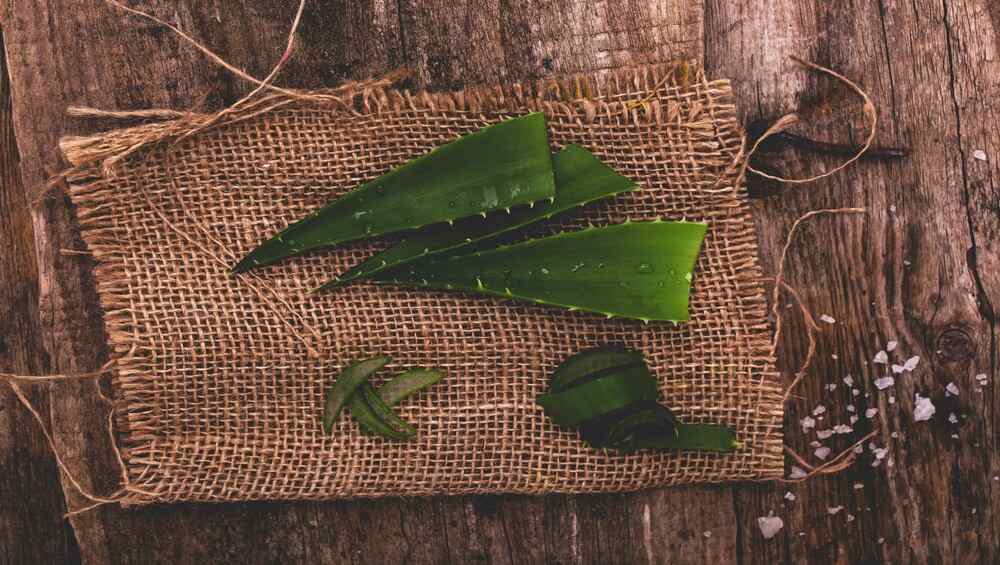
The age-old aloe vera plant is bombarded with skin benefits. It is not just known as a cooling agent but also packed with antifungal and antibacterial properties. Applying aloe vera juice on the scalp twice a week for 30 minutes magically diminishes dandruff from its root. Do not forget to shampoo each time you give an aloe vera massage to your hair for wonderful results in no time.
5. Use a Neem Wood Comb
Many individuals believe that hair combs and brushes are only an outside apparatus for hair styling. Nonetheless, a messy, inappropriate hairbrush can seriously shake your scalp prompting diseases and dandruff. Accordingly, have a go at utilizing Neem wood combs. Clean and change hair combs frequently. This is an essential yet magical method for keeping up with great nourishment for your hair.
Bhringraj Juice
Bhringraj juice is an age-old remedy for dandruff and dry scalp. It disinfects the scalp naturally as it has anti-inflammatory and anti-fungal properties.
Sesame oil
Derived from sesame seeds it is the oldest oil used by mankind. It is rich in antioxidants and minerals like magnesium and calcium. It is also antifungal therefore useful in dandruff and restoring hair fall.
Fenugreek seed oil
Due to high protein and Nicotinic acid, Fenugreek seed oil prevents hairfall and dandruff. It also contains a large amount of lecithin which hydrates the hair and strengthens the roots.
Hibiscus
Hibiscus is a cleansing and scrubbing agent for the scalp. It works like an astringent, cools the scalp, and corrects the PH balance.
Ashwagandha
Ashwagandha is also an antioxidant and anti-inflammatory agent. It prevents any kind of scalp infections and slows down the aging process of hair. It protects the hair from the sun and restores its moisture balance.
Indravaruni
Indravaruni or bitter apple is a relative of gourds and watermelon. The anti-inflammatory and analgesic properties stimulate the hair follicles and promote cellular rejuvenation of the scalp.
While the rundown of ayurvedic remedies for restoring dandruff is interminable however the above-mentioned can be done to see superb results. It is time that you take control of your hair in your hands by following ayurvedic remedies that go a long way in treating a myriad of hair issues and provide your hair, the care they deserve!

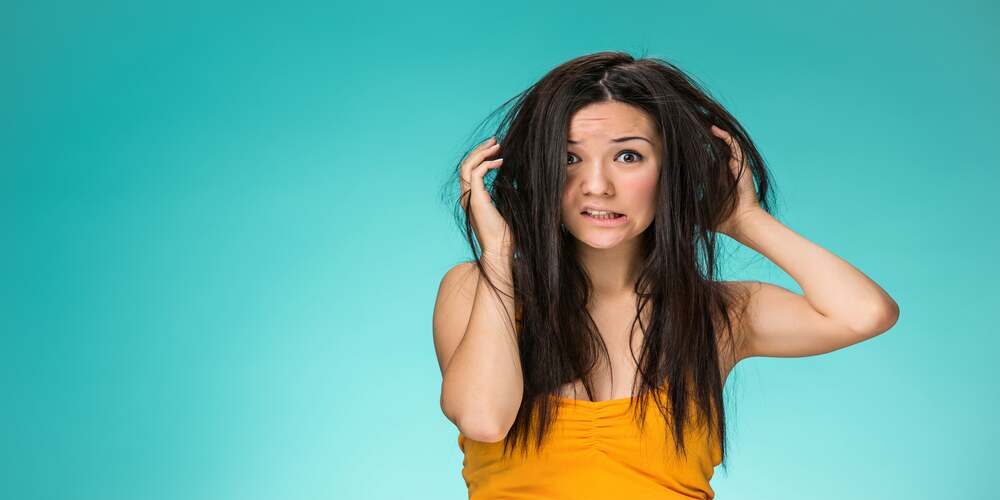

2 Comments